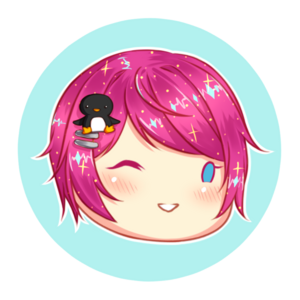A/N: The following story is a historical piece of fiction that contains graphic depictions of slavery and abuse. Although I have written a story that contains blatant racism, I, the author, do not condone nor promote racism, nor the abuse of any POC. I have written this story with the intention of spreading awareness of the abuse POC have endured in the past, and continue to endure in the present, in the hopes that all people, including POC, can learn to love, regardless of color, so that we may have a better future for ourselves, and our children.
~@~
Amber was painted in thick brushes across the graying sky, the golden sphere of the sun settling into the shadowed silhouette of mountains just nestled at the horizon, far ahead of the caravan that had stopped for the night. Travelling by dark was dangerous for many a reason, even in a group as large as this, so parking the wagons and tethering the horses, bed sheets rolled out and water boiling in the fire pit, was the wisest decision they could have made.
It was a line of settlers who barely knew each other, simply travelling for convenience and safety in numbers, moving west away from the colonies to settle in newer, richer lands. Opportunity awaited them, a chance for money, fame, and for one man, a chance for redemption.
He was an old man now, most of the group wondered why he was there, how he even managed to get as far as he had in the state he was in. The hair on his head was course and gray, thinning at the front, crow’s feet wrinkling the corners of his eyes, and his cheeks sagging on the bone. His hands were gnarled and covered in liver spots, shaking ever so slightly as he sat alone beside his fire and poured black coffee into a tin cup with a dent right on the side that resembled a bullet shot.
He had kind, inviting blue eyes, though they were heavy with memory and anguish, and a hunching back that would have been a clear sign of years of hard labor, if it weren’t for the crisp clothes he wore. You never saw a farmer or field worker wearing white dress shirts buttoned securely around the wrists, smooth black vests, or slacks that fit well with the black shoes on his feet. There was a silver chain on his vest leading to his pocket where a watch sat, often he would be seen holding it and turning it around in his arthritis ridden hands, opening it, and closing it just to hear the clicking of the delicate latch.
The man was wealthy already, it was easy to tell, so it was a wonder why he was travelling with a caravan of merchants hanging by thin sections of twine, why he would willingly mingle with indentured servants recently freed from their bonds, or even more damning, why he would hold conversations with slaves. The lowest of the low, mud on the bottom of a horse shoe, and a wealthy man who must have been from high standing was treating them like humans?
Most just passed it off as dementia, he must not have known what he was doing, or what he was talking to, but some still wondered. He was an old man, likely in his eighties, obviously coming from money, yet he was travelling, alone mind you, with no slaves, no plan, nothing to his name besides a velvet case he only opened occasionally to take out clean clothes or supplies like his old tin mug.
That, too, baffled the people watching. If he truly came from money, why use such a beat-up cup? Surely, he can afford much better equipment? The man had lost his mind, no doubt, which would explain why the others in his group tended to stay away from him.
All but a small slave boy.
He was sixteen, dressed in ragged clothes, his feet bare and callused, dark skin scarred and burned from abuse. No one knew his name, he was never given one, it seemed to those around him that he wasn’t worthy of a name. His master called him “boy” or “slave” if he needed to be called, otherwise he was simply a shadow. He was small for his age, lean, not built for the labor he was put through, but the white men didn’t seem to care too much for his suffering.
The night was cold, he was given no blanket, he just stood beside the tree where the horses had been tied, feeding them sugar from his hand and stroking their noses to keep them calm. The few families from the caravan had set up their tents and fires further away to keep the stench of the animals where they needed to be, but the old man was closer, patting at his pocket where his silver watch was and sipping slowly from his tin cup.
“Aren’t you cold?” he asked unexpectedly, and the slave boy turned his head in bewilderment at being addressed in such a friendly way.
“No, sir,” he responded, and the old man hummed, setting his cup down.
“Come, sit,” he patted the log beside him, but the boy just shook his head.
“No, sir, I need to stay here.”
“You won’t be far from the horses if they should spook. Sit and chat with an old man. We’re alike, aren’t we?” he chuckled, “Both of us lost in the cold.”
Dark eyes flew over the old man’s form uncertainly, then over to the fire pits located several yards away. Surely, they couldn’t see in the darkness, his master wouldn’t notice him sitting for a moment, right? What was the harm in honoring an elder’s request?
“Yes, sir,” the boy moved closer towards the fire, lowering himself onto a log across from the older man, hands folding between his knees as he stared at the dancing flames, resisting the urge to stretch out his freezing fingers to warm them.
“Better,” the man reached out and picked up the pot boiling in the coals, filling up the cup before holding it out for the slave boy, “Here, warm yourself.”
“Yes, sir,” was the response, a sigh of relief passing the boy’s lips as he took the cup into his hands and held it to his chest.
“What’s your name?”
“I don’t have one, sir.”
“Ah,” the man nodded, eyes wandering up nostalgically, “Well we should change that. I was always partial to the name Jedidiah.”
The slave’s face burned in shock, and he squeezed the sides of the tin cup, his fingers slipping into the dent, “No, sir, I don’t need a name.”
“What should I call you, then?” the man asked, “Jed, I like that. Well, Jed, it’s a true pleasure meeting you. You can call me Henry, Henry Elias,” he stretched his arm over the fire for the slave boy, Jedidiah’s hand, but he was met with a wavering stare, so he simply pulled his arm back, “How long have you been a slave, Jed?”
“I’ve never known anything else, sir,” Jedidiah answered, turning the cup around in his hands.
“You don’t ever wonder what freedom feels like?” Henry asked, and Jed’s brow curved in to show his confusion, “What do you enjoy doing, son?”
“Enjoy?” Jed lowered his gaze, “I enjoy tending the animals, sir.”
Henry shook his head, “What about reading?”
“I can’t read, sir. I can’t write either.”
Henry sighed, “I suppose I’m not very surprised. There was a slave on my father’s estate, he loved reading. My brother would bring him books of poetry, read to him. That young man was quite brilliant. He had this ambition, see, of leaving my father’s estate, becoming a teacher. Goodness the talk in the town, a slave becoming a teacher. Would you want to teach, Jed?”
Jedidiah shook his head, “I’m not sure, sir. I don’t think so.”
“It’s good to have ambitions,” Henry said, “I think you would have liked him. Josiah, was his name. Given to him by my brother. When our father brought him to the estate, he had no name, like you, but my brother decided on one for him. Josiah. My brother was a wonderful boy. See, here,” he pulled the watch from his pocket and opened it, holding it over to Jedidiah, “He’s nineteen here. He wanted to go to Africa to study the culture and wildlife.”
Jedidiah timidly took the watch and brought it closer to himself so he could see the faded picture. The young man shown had dirty blonde hair and dark eyes that were likely as blue as Henry’s. He was dressed in similar clothing, white dress shirt and black vest with slacks and black shoes, well-groomed and smiling.
“Is he in Africa now, sir?” Jed asked, handing the watch back, and Henry smiled, though it didn’t reach his eyes.
“My brother is surely in a wonderful place, now,” he answered softly, tapping the closed watch against his chest, over his heart.
Jed sat a little straighter, “Are you going to see him now?” he asked, “Is it why you’re travelling?”
Henry smiled a little more genuinely, nodding his head, “That’s right,” he said, “I’m going to see my brother.”
“When was the last time you were with him?” Jed asked, and Henry sighed wistfully.
“Not for many years,” he admitted with heavy regret in his voice, “He left when he was very young, not yet twenty. This picture,” he tapped the watch, “was the last before he went. He isn’t alone, I assure you. Josiah is there, as well. They left together.”
Jed pressed his lips together, “Josiah was a slave?”
“He was.”
“He left, because he wanted to be a teacher.”
Henry hummed, “Josiah wanted much more than what he had, that is sure. Ah, that isn’t to say he was unsatisfied with his life, in fact he always seemed very content, but leaving, becoming a teacher, no longer being a slave to the estate, that is something he did truly want.”
“He did!” Jed said, excitement in his eyes, “Tell me how, please.”
Henry laughed, dropping an extra piece of wood into the fire, “I’m not sure you’d enjoy that story.”
“Oh, but I will!” Jed assured, “Please, sir?”
Henry watched the flames dancing for a moment before looking up at the young boy sitting across from him, “If you’re sure.”
“I am, sir.”
“Alright,” Henry sighed and sat back, looking up at the starry night sky as his fingers curled around the pocket watch, “I was a late twenty-three when that summer started….”











Comments (0)
See all